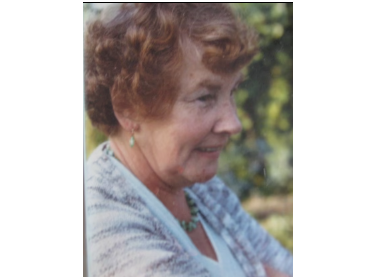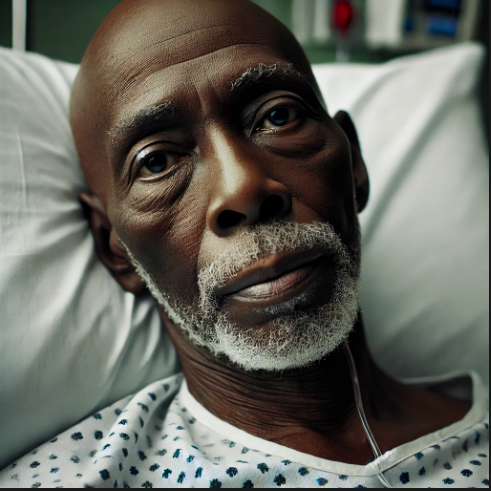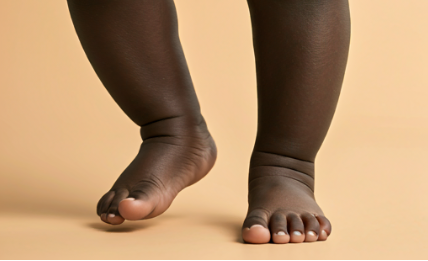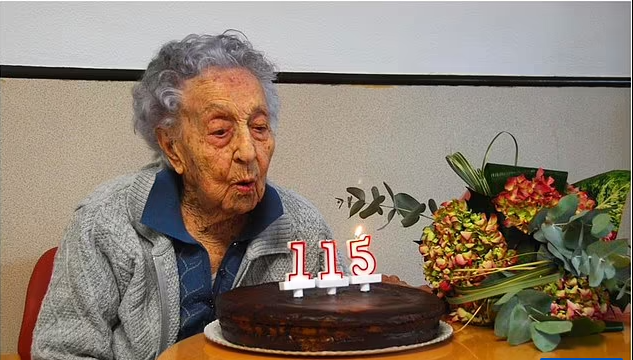A bitter family dispute has erupted over a KES 112,000,000 inheritance after a pensioner, on her deathbed, tore up three-quarters of her will with her bare hands.
The ‘stubborn and old-fashioned’ 92-year-old Carry Keats’ fortune is now at the center of a unique High Court fight between her relatives.
She physically ripped three-quarters of the way through the pages of her will during her final illness in hospital, creating a family drama pitting her five distant cousins against her younger sister – with whom she had a ‘love-hate relationship’.
Under a Victorian law passed in 1837, any person can legally revoke a will they have made by tearing it up, so long as the act is carried out within certain guidelines.
If Mrs. Keats is found to have legally destroyed the document and died without a valid will, her younger sister Josephine Oakley will inherit everything she owned.
The court has heard Mrs. Keats had fallen out with other family members ‘after they indicated that they were going to put her in a nursing home if she had another fall’.
But those making the challenge say Mrs. Keats in fact wanted to leave her sister nothing, having disapproved of accusations that Mrs. Oakley committed adultery in her younger days.
Mrs. Keats’ cousins – who would split most of her fortune under the will – are now bringing a challenge at London’s High Court.
They are claiming that the dying pensioner did not validly revoke it because she was too weak to rip the document all the way through with her own hands.
The cousins, headed by David Crew, the son of Mrs. Keats’ and Mrs. Oakley’s cousin Lucy Whitehorn, say the will should stand as Mrs. Keats was only strong enough to tear it three-quarters of the way through, with the rest being ripped at her request by her solicitor.
As well as saying Mrs. Keats wanted to leave her sister nothing, they also argue that she did not have the mental capacity on her deathbed to change her mind about who got her fortune in such a dramatic fashion.
But Mrs. Oakley – who denies the adultery claims – says her sister knew what she was doing and had decided to cut out her cousins after they proposed putting her in a care home and because it was what the sisters’ dad ‘would have wanted’.
The High Court heard that Mrs. Keats died on February 15, 2022 – less than three weeks after tearing up her last will as she lay dying in hospital in Salisbury, Wiltshire.
Mrs. Keats, who owned and ran a successful caravan site, left behind a KES 112,000,000 fortune, mainly tied up in her home and land in the Wiltshire village of Nomansland.
Eighteen months earlier, she had made a will which split almost everything she owned between five distant cousins of hers, one of whom – David Crew, her cousin once removed – had been close friends with her and her late husband for decades.
The other four were David’s sister Angela Crew, plus cousins twice removed Kevin, Jason, and Leon Whitehorn.
However, towards the end of her life, she grew closer to her younger sister Josephine – nine years her junior – with whom the court heard she had a ‘love-hate relationship’.
The court heard Mrs. Oakley say that she took her sister roast dinners every Sunday whilst she was still at home during her last years and visited her in hospital almost every day during her final illness.
During the same period, Mrs. Keats – who was described as ‘stubborn’ and ‘old-fashioned’ in court documents – fell out with David Crew and his sister Angela, the court heard.
This was ‘after they indicated that they were going to put her in a nursing home if she had another fall,’ Mrs. Oakley’s lawyers told the judge, Deputy Master John Linwood.
These changes in the family dynamics led to a dramatic scene in January 2022, involving the ailing Mrs. Keats sending for her long-time lawyer Hafwen Webb as she lay in her deathbed in Salisbury Hospital and tearing her will in front of her.
Simon Sinnatt, for the cousins, told the judge that, under the Wills Act 1837, for the destruction of the will to be valid Mrs. Keats had to either intentionally fully destroy the will herself or properly authorize her solicitor to do so.
He said: ‘Did the deceased sufficiently destroy the will? Did the deceased authorize Hafwen Webb to complete the destruction or acquiesce in the same?
‘Did the deceased have the requisite intention to destroy the will? If the will was revoked, did the deceased have the mental capacity to do so?
‘The completion of the tearing by Hafwen Webb raises a problem which potentially invalidates her completion of the process for lack of authority.’
Mr. Sinnatt argued that Mrs. Keats was unlikely to have had the mental capacity to legally approve the solicitor to finish tearing of the will, as she was medicated and in pain.
But in the witness box, law firm partner Ms. Webb said Mrs. Keats was a ‘well-known and long-standing client,’ adding: ‘Her character hadn’t changed. She was still the same old Carry. She knew who I was and why I was there.
‘I told her repeatedly that if she died intestate Jo would inherit. She said their father would be pleased. I told her she could tear up the will to revoke it.
‘She wasn’t happy that the will was in place. She gave me instructions and from that I took it that she had capacity.’
Mrs. Keats had previously gone to the law firm in November 2021, saying that she wanted to cut the cousins out of her will after falling out with them, the solicitor said.
Ms. Webb added: ‘I felt confident and comfortable after she ripped up the will that she was at peace. She looked at peace and I felt that was what she wanted, especially with what she had told me in November the year before.
‘Carry knew why I was there. She was giving me the correct responses and it wasn’t any different to what she had been saying in November.’
The solicitor accepted that Mrs. Keats had ‘lost capacity’ by the end of the visit after a painkilling injection took effect, but told the judge: ‘I knew I had that window. I was confident she knew what she was doing and she wanted to tear up the will.’
Mrs. Oakley’s barrister Christopher Jones told the judge: ‘Josephine and Carry were sisters who enjoyed a normal relationship between siblings where there is a considerable age gap – it was not without argument, but [they] always cared for each other.’
Mrs. Keats was someone who was ‘stubborn and had very old-fashioned views’ and ‘she liked to reward people who were in her favour’, he added.
He told how, by 2020, Mrs. Oakley was undertaking Mrs. Keats’ grocery shopping, took her roast dinners each Sunday and for the last 18 months of her life escorted her to hospital and GP appointments.
Mr. Jones said Mrs. Keats was left ‘clearly upset’ by David and Angela ‘after they indicated that they were going to put her in a nursing home if she had another fall’.
She had been friends with Mr. Crew for more than 40 years, but felt his ‘behaviour and attitude towards her was not good’, the court heard.
Mr. Jones continued: ‘[She] was adamant that she did not wish to keep the 2020 will as she did not want the Crews to inherit.
‘The act of physical destruction is made out. In the circumstances, the overwhelming body of evidence points to a valid revocation of the 2020 will.
‘The evidence is clear. Carry wished to revoke her 2020 will by destruction. Following the advice of Mrs. Webb, she did so on 26 January 2022.
‘The medical records refer to periods of intermittent confusion, but no more. When Mrs. Webb met with her on 26 January 2022, she was satisfied that Carry had testamentary capacity to revoke her will.’
But in the witness box, David Crew told the judge that he was sure Mrs. Keats did not want her sister to inherit.
He said: ‘Carry was very lucid in what she told me, that her sister was never mentioned in any of her wills.
‘Carry didn’t like her sister because of all the various things that had happened in the past – not just lending money but infidelity in her marriage. I know what Carry told me.
‘I never saw or read any of her previous wills, but she explained to me what her feelings were at this time and that she would not name her sister in her will because she was unhappy about things that had happened in the past.
‘She was disgusted by her sister due to her infidelity. I had to accept what she said. She told me that she would never put her sister in her will.
‘She was disgusted by what happened between her and her husband – her husband had come home early and found her in bed with another man.’
Mrs. Oakley’s barrister confirmed outside court that she denies the alleged incident or any infidelity.
The judge has now reserved his ruling on the case to be given at a later date.



























